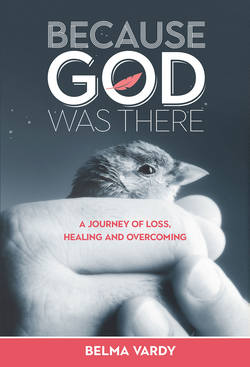Читать книгу Because God Was There - Belma Diana Vardy - Страница 10
На сайте Литреса книга снята с продажи.
ОглавлениеPreface
God is a great steward, wasting nothing of our pain. Only God so perfectly designed the life of a little girl who spent her childhood in Germany and her teen years unhappily relocated in a foreign environment under severely abusive conditions, so that she could identify with and relate to the pain of Indigenous people.
In 1993 God gave me the opportunity for compassionate ministry with First Nations People “to comfort those who are in any affliction, with the comfort with which we ourselves are comforted by God” (2 Corinthians 1:4, ESV). Since then, I have developed a deep love for them and their teachings and a desire to see them experience cultural redemption. Their chiefs invited me to share my story and participate in their communities. When I tell my testimony, they relate because many were sent to residential schools away from their loved ones, sometimes into abusive situations. Everything I’ve experienced has been part of their history.
Some background: In the 1870s the Government of Canada partnered with Anglican, Catholic, United and Presbyterian churches to build and run residential schools for First Nations children. Their goal was to educate and integrate Indigenous people into Canadian society and “kill the Indian in the child,” according to one government official.
There were more than 130 federally supported residential schools across Canada. The last one closed in Duck Lake, Saskatchewan, as late as 1996. More than 150,000 children, some as young as four years of age, were required to attend these schools. About 80,000 of them are still alive and share their experiences today.
The children were forcibly removed from their homes and separated from their families. The parents had no choice in the matter, and any who protested the removal of their children faced possible imprisonment. The schools were often such long distances away that families lost contact. Visits were seldom permitted.
In the schools, children were forbidden to speak their native language or practice their culture and were often punished for doing so. They were subjected to sexual and mental abuse as well as severe beatings, and many were required to do hard labour. The quality of food they received was poor: too many reports of mouldy, maggot-infested, rotten food surfaced to be ignored.
Children removed from their homes didn’t have a chance to learn parenting skills. Many forgot their native language and traditions. Others adopted the abusive behaviours, continuing the cycle of abuse and trauma from one generation to the next.
These communities and people continue to be in great need of healing. Their pain is reflected in high rates of substance abuse, violence, crime, suicide and imprisonment. Dysfunction marks family life. First Nations children today suffer with post-traumatic stress syndrome as a result of abuse experienced by their grandparents and great-grandparents.
In recent years churches and the federal government have issued various statements of apology to Indigenous people, the most notable of which was Prime Minister Stephen Harper’s on June 11, 2008, on behalf of all Canadians for the years of residential school atrocities committed against First Nations people.
While the apologies have been necessary, and are welcome, they have not been able to remove the memories of the outrageous treatment First Nations people endured. The abuses have resulted in deep emotional and psychological damage that has made it extremely difficult for survivors to reengage in normal family, social and professional life.
Hundreds of healing initiatives and projects have been funded through the federal government’s Aboriginal Healing Foundation and other organizations, but few truly understand the hearts of First Nations people. It’s difficult for Canadians to relate to the suffering of Indigenous people because the residential school experience is foreign to their own.
Among the First Nations there is a deep sadness and grief that breeds hopelessness. According to the chiefs, my story dispels grief because I have crossed the divide from hopelessness to healing. When I tell my story, First Nations people identify with it. The chiefs hope their people will receive healing and freedom through it. Thus the reason for writing this book!
I have learned that, as with any authentic relationship, the key to involvement with First Nations people is respect. It is especially important to develop a relationship with an elder. By developing a relationship with an elder, one learns about their culture and comes to understand what transpired in their communities as a result of colonization and assimilation.
During my years of relationship with First Nations people, I have had the privilege of being connected with pastor, counsellor and elder Lorne Shepherd. Lorne has been consistently involved with my story: he counselled me and became my spiritual father. His comments in the “Pause and Reflect” sections are written from a counsellor’s perspective to bring understanding and revelation to various experiences in my story.
Also, I am honoured to have the involvement of pastor and Native American Music Award recipient Becky Thomas in this project. Her contribution of the “Discussion and Study Guide” has enriched and given depth to my story. It motivates people to explore their own hearts and relationships to bring wholeness and healing. She also wrote the questions for “Pause and Reflect,” giving readers a chance to consider and apply Lorne’s nuggets of wisdom within the context of their own lives and circumstances.
I pray that the eyes of your understanding would be enlightened in reading my story and that God would lead you, as you consider the wisdom Lorne and Becky share, to discover the blessings God has reserved for you.
Belma Vardy
